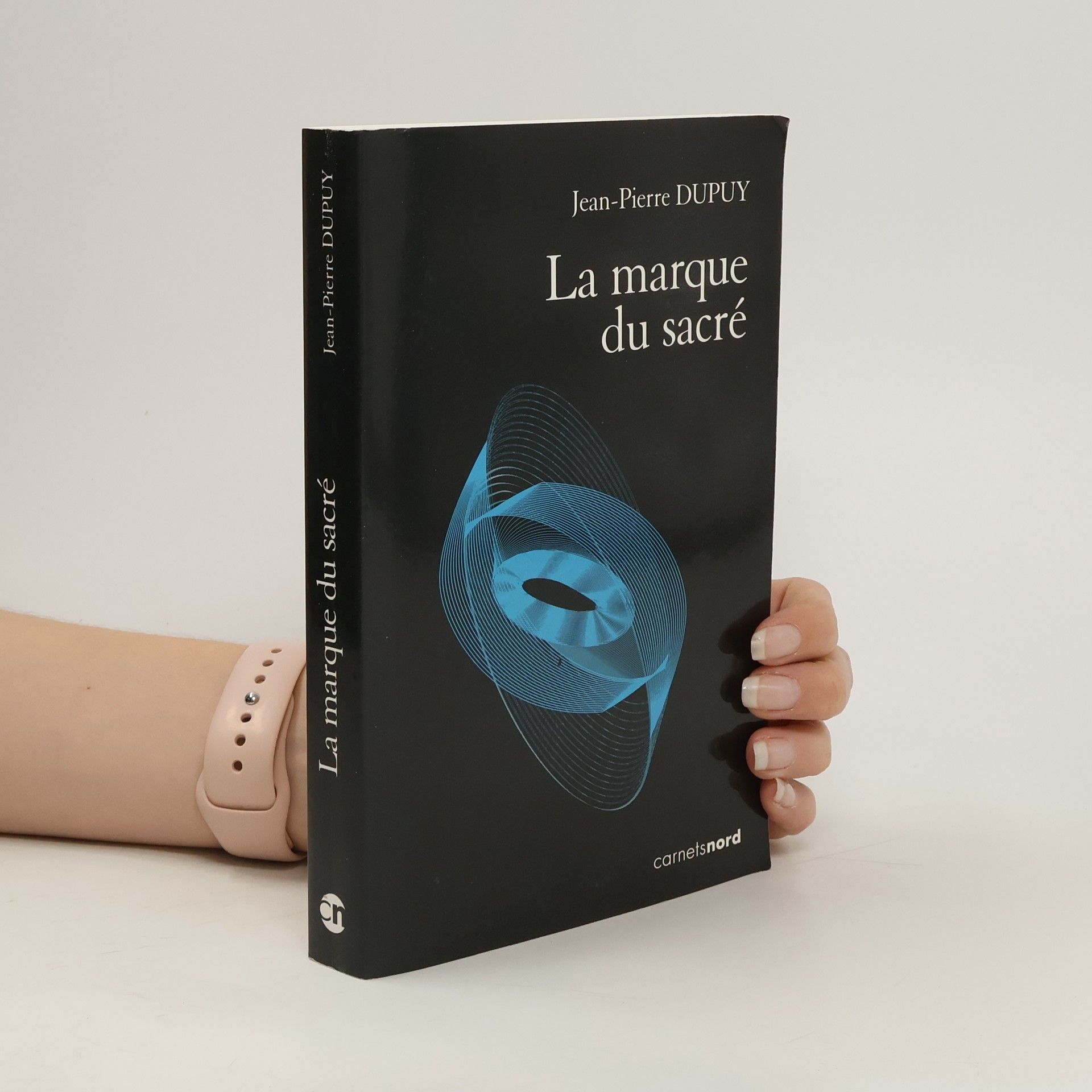Jean-Pierre Dupuy Livres
Jean-Pierre Dupuy est Professeur Émérite de Philosophie Sociale et Politique dont les travaux explorent les liens complexes entre technologie, société et avenir. Avec une profonde compréhension de la pensée systémique et de l'épistémologie appliquée, il se penche sur la manière dont nos décisions actuelles façonnent le lendemain. Ses analyses soulignent souvent la nature paradoxale du progrès et la nécessité d'une perspective critique sur notre trajectoire technologique. L'œuvre de Dupuy invite les lecteurs à réfléchir aux implications éthiques de l'innovation et à façonner activement un avenir plus durable.






La marque du sacré
- 279pages
- 10 heures de lecture
Rayon : Philosophie Editeur : Carnet Nord Date de parution : 2009 Description : In-8, 280 pages, broché, occasion, très bon état. Envois quotidiens du mardi au samedi. Les commandes sont adressées sous enveloppes bulles. Photos supplémentaires de l'ouvrage sur simple demande. Réponses aux questions dans les 12h00. Librairie Le Piano-Livre. Merci. Référence catalogue 57293. Please let us know if you have any questions. Thanks
32x26x1cm. Broché.
Le sacrifice et l'envie
le libéralisme aux prises avec la justice sociale
- 374pages
- 14 heures de lecture
Individualisme libéral et justice sociale, un couple difficilement conciliable, est exploré par Jean-Pierre Dupuy à travers la philosophie libérale économique, d'Adam Smith à John Rawls. Alors que la voie socialiste vers la justice semble compromise, l'incapacité française à penser le marché dans ses dimensions morale et politique devient préoccupante. Ce livre offre une introduction critique à la tradition philosophique anglo-saxonne qui conçoit la société de marché comme un ordre « spontané » ou « auto-organisé ». Il soulève la question de la société juste et bonne de diverses manières. Dupuy propose une interprétation originale de l'émancipation de l'économie par rapport à la morale dans l'œuvre d'Adam Smith et articule sa lecture des théories libérales de la justice (économie normative, John Rawls, utilitarisme, libertarisme, Friedrich Hayek, Robert Nozick) autour des notions de sacrifice et d'envie. Les liens avec la tradition philosophique française sont également mis en lumière. La thèse de Dupuy émerge progressivement : la tradition libérale semble penser la société marchande au plus près de sa décomposition en foule panique. La société juste et bonne est celle qui contient cette menace.
The possibility of a nuclear war that could destroy civilization has influenced the course of international affairs since 1945, suspended like a sword of Damocles above the heads of the world's leaders. The fact that we have escaped a third world war involving strategic nuclear weapons--indeed, that no atomic weapon of limited power has yet been used under battlefield conditions--seems nothing short of a miracle. Revisiting debates on the effectiveness and ethics of nuclear deterrence, Jean-Pierre Dupuy is led to reformulate some of the most difficult questions in philosophy. He develops a counterintuitive but powerful theory of apocalyptic prophecy: once a major catastrophe appears to be possible, one must assume that it will in fact occur. Dupuy shows that the contradictions and paradoxes riddling discussions of deterrence arise from the tension between two opposite conceptions of time: one in which the future depends on decisions and strategy, and another in which every occurring event is one that could not have failed to occur. Considering the immense destructive power of nuclear warheads and the almost unimaginable destruction they are bound to cause, Dupuy reaches a provocative conclusion: whether they bring about good or evil does not depend on the present or future intentions of those who are in a position to use them. The mere possession of nuclear weapons is a moral abomination.
Il caso e la libertà
- 187pages
- 7 heures de lecture
Da "il caso e la necessità" al "caso e la libertà". Scienziati, psicologi e filosofi pongono l'accento sul valore critico della scelta, della creatività e della responsabilità del ricercatore.Contributi di Henri Atlan, John D. Barrow, Remo Bodei, Jerome S. Bruner, Jean-Pierre Dupuy, Paolo Fabbri, Paul K. Feyerabend, Stefano Rodotà, René Thom.
